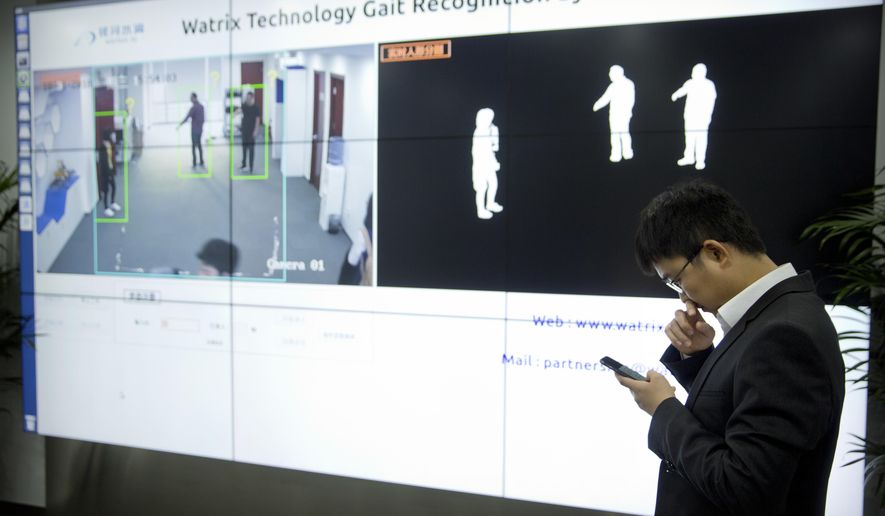OPINION:
China has just employed new “gait recognition” technology that can identify individuals by the way they walk.
This is police surveillance taken to a whole new level of frightening. Whispers are that America’s airports might make a decent testing ground to bring the artificial intelligence here.
That would open quite the can of worms now, wouldn’t it?
China, totalitarian nation as it is, doesn’t have to concern itself with piddly questions of civil rights and pesky matters of privacy infringements. As such, it’s been busily scooping up all the Big Data it needs to achieve technological breakthroughs, merrily speeding in the meanwhile toward global dominance in the artificial intelligence arena — as vowed.
“China will overtake America as leading AI superpower, warns ex-Google Beijing bigwig,” the Register reported in September, in a piece on how the communist-run country will become the global leader in technology within the next five years.
“China plans to dominate AI, with a vanguard of robotic doctors like ’Biomind,’” the Los Angeles Times reported in July, in a story how Beijing had just pitted new machine-learned robotics against human physicians to interpret neuroimages — setting the stage for massive technology breakthroughs in the medical sector.
“China and US set for arms race in AI that will lead to respective spheres of dominance, says expert,” the South China Morning News reported this month, citing President Xi Jinping’s October appeal to party members to apply technology to achieve dominance with warfare and military products.
The pressure for America to keep ahead of the A.I. game is intense.
As Director of National Intelligence Dan Coats warned in a Citadel speech in September, modern day China has been “among the most active foreign states conducting cyber activities against United States’ interests.”
Meanwhile, Defense Secretary Jim Mattis advised in a May memo to President Donald Trump that America needed to put more forth in terms of shaping a federal artificial intelligence policy — if only for national security reasons.
But America needs to tread carefully here.
Yes, the United States has to stay on the forefront of technology to remain competitive in the markets, and as means of defense and security. The challenge, though, is to accomplish this goal without becoming a China — without turning into an outright police state with Big Brother eyes watching all and Big Data fingers scooping and collecting and reporting everything. The responsibility of America’s powers-that-be is to meet this challenge.
In China, it’s this: “You don’t need people’s cooperation for us to be able to recognize their identity. Gait analysis can’t be fooled by simply limping, walking with splayed feet or hunching over, because we’re analyzing all the features of an entire body,” said Huang Yongzhen, the CEO of Watrix, the company that devised the gait surveillance system, ABC News reported.
In America, it’s this: “The right of the people to be secure in their persons, houses, papers, and effects … shall not be violated.”
And this: “No person shall be … deprived of life, liberty, or property, without due process of law …”
And this: All citizens are presumed innocent until proven guilty in a court of law.
These are cherished, long-held protections and guarantees of privacies, individual rights and God-given freedoms. Any race to the top of technology cannot be allowed to violate these principles.
America must never allow itself to become a China — no, not even for national security reasons. This isn’t just a challenge for technological researchers; it’s a duty of America’s political gatekeepers.
• Cheryl Chumley can be reached at cchumley@washingtontimes.com or on Twitter, @ckchumley.




Please read our comment policy before commenting.